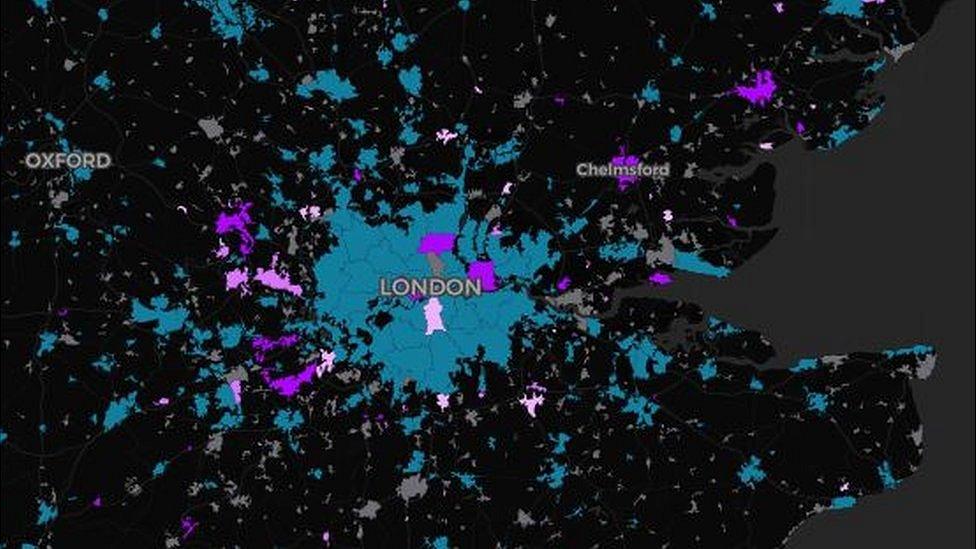Covid-19: 'Lockdown won't stop our children being exploited'
- Published
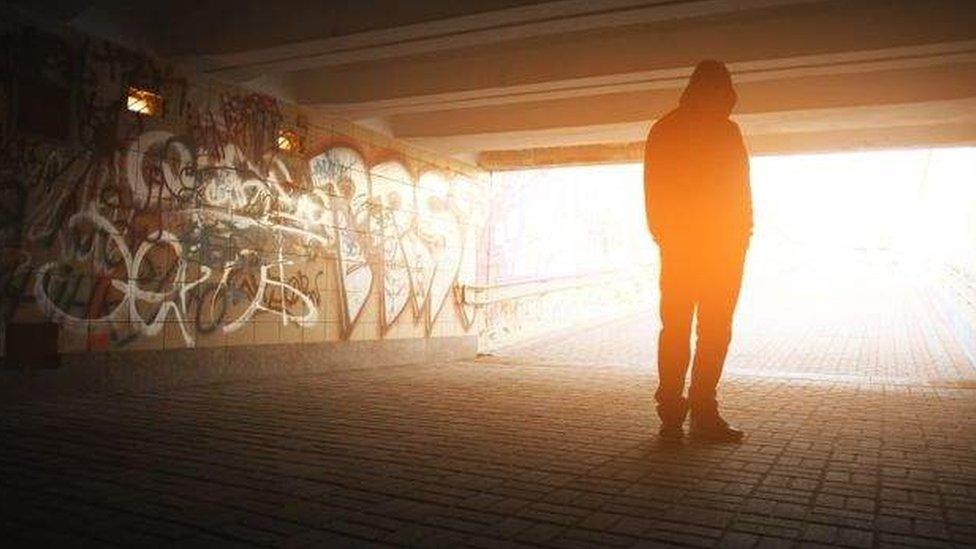
Charities are seeing a rise in cases of online exploitation and want the public to become more vigilant
A mother has spoken of how her son disappeared after getting caught up in a "county lines" drugs trade amid threats to his life. She urges parents to look out for signs that their child could be being groomed by criminal gangs during lockdown.
Jenny, not her real name, from London, said she wished she had known what to look for, as her son got involved in "county lines" drug dealing.
Her 15-year-old son started to become withdrawn from her and became moody and closed.
"He had a new phone, expensive alcohol and weed and was being suspended from school," she said.
"Social services became involved but he was not seen as a risk."
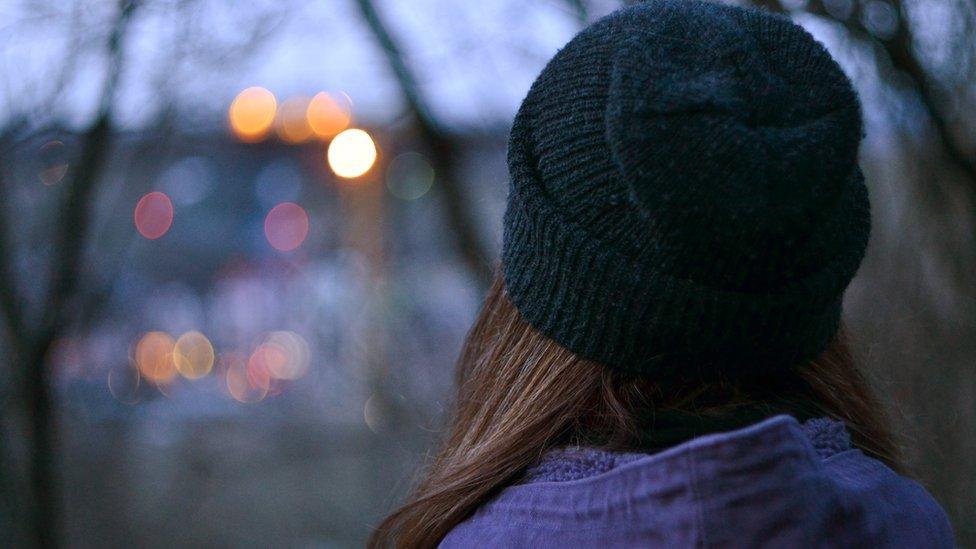
Jenny said she didn't see the signs that her son was being groomed
Working every day, Jenny said it was hard to keep tabs on her son,
"Then one day, he said he was going to the gym, and just disappeared," she said.
"It wasn't until a good few days of him being missing that I found out from friends talking on social media that he had 'gone up country'.
Jenny did some research and came across the Children's Society website which helped her realise her son was being groomed.
"I realised he was being exploited. I felt guilty, that I hadn't spotted the signs", she said.
"I had no idea that this existed, that people out there prey on children, gain their trust and use them to sell drugs in other parts of England."
What is County Lines?
According to the Home Office, 2,000 teenagers from London have been identified as having a link to "county lines" activity.
Charities are seeing a rise in cases of online exploitation and want the public to become more vigilant.
The Met Police said gangs are finding new tactics during the pandemic.

What are the signs?
Police and children's charities say parents should look out for:
Unexplained gifts, or appearance of clothes, money or phones
Going missing and turning up far from home, possibly in another town
Sudden change in behaviour, children becoming more secretive or aggressive

Becky Fedia from The Children's Society said organised crime groups had not stopped targeting young people during lockdown.
"In fact they've changed their tactics to ensure they're not detected, like putting children in taxis instead of trains when transporting drugs."
She said it was also worrying that many children were missing out on contact they were previously having with teachers and social workers during lockdown.
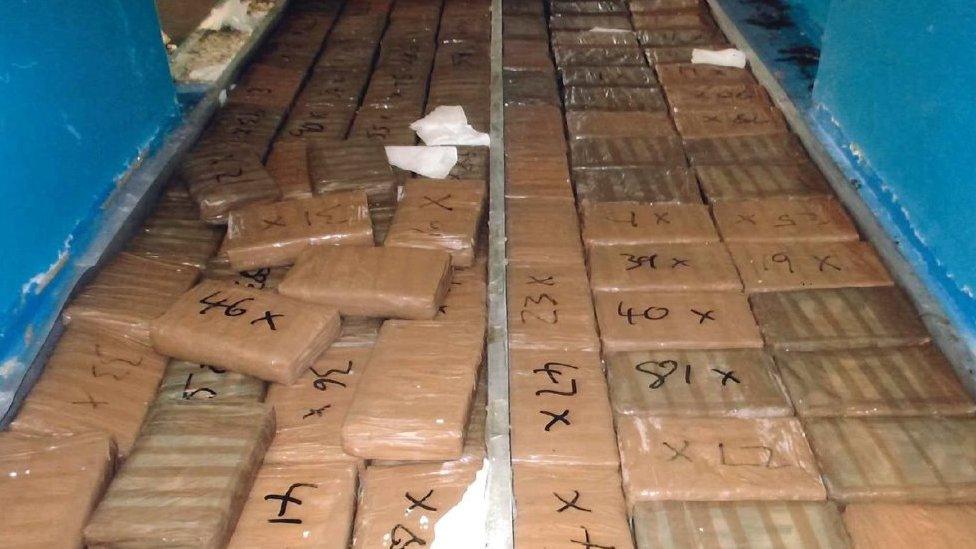
Gangs are importing drugs in larger consignments during lockdown, police say
Jenny said her son was exploited by organised criminals, initially to shoplift, but later to carry drugs.
He was arrested and faced trial for supplying Class A drugs.
She is concerned children are more susceptible to being groomed online now more than ever.
"[Parents] are working from home and thinking [their children are] probably doing online classes, but they could be on their phones, on Snapchat.
"Criminals are always finding new ways to entice children, and I think social media right now is number one for that to show off what you can get if you start working for me."
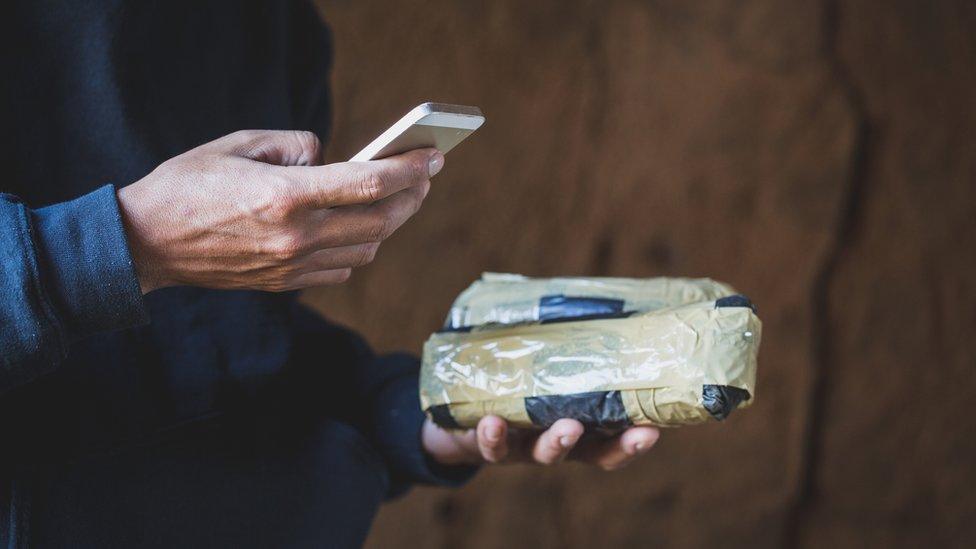
A report found gang leaders encouraged youngsters to vary dealing hours and locations in order to blend in
The Children's Society offers help and support to the parents and carers of children who have been groomed.
On Monday it is partnering with British Transport Police , externalto encourage the public to look for signs a child may be at risk of being groomed and exploited.
A report by City Hall last year found gang leaders encouraged youngsters to vary dealing hours, external and locations in order to blend in or justify breaking restrictions if stopped.
For Jenny, her relationship with her son is a "work in progress" but she says life has improved after receiving help.
"He's done his exams now, got his provisional license", she said.
"We managed to move and start over again. Our relationship is stronger.
"A lot of parents think think that's not going to happen to their kids. But it can happen to anyone."
Related topics
- Published30 September 2020
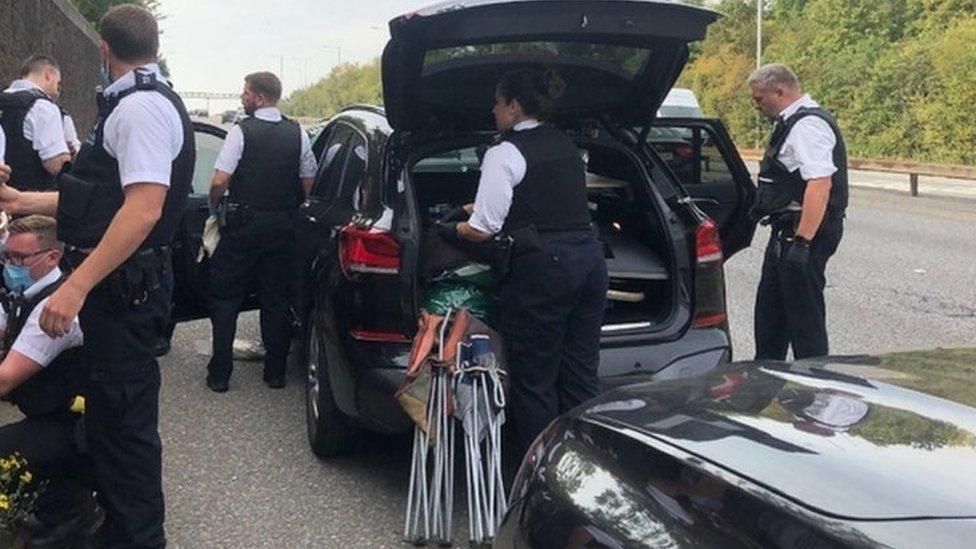
- Published2 June 2020
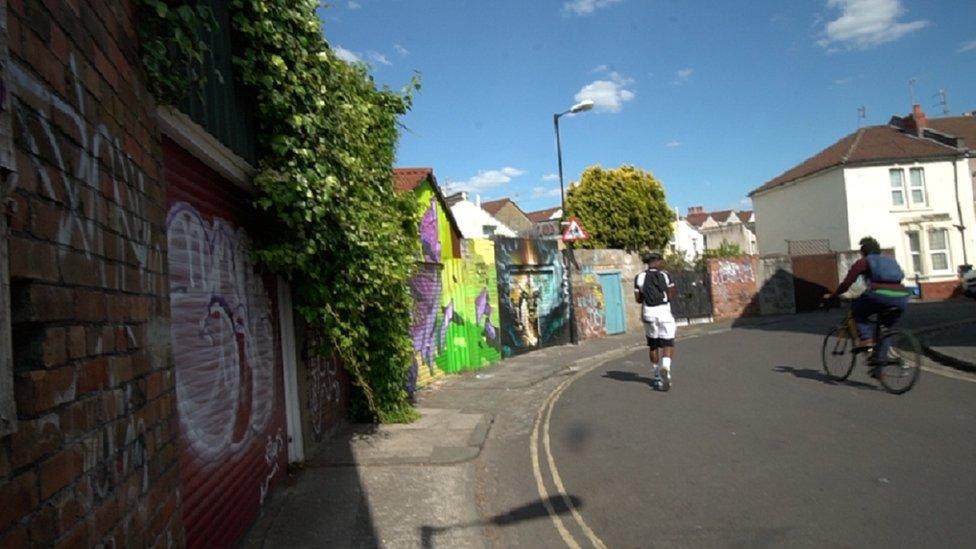
- Published12 May 2020

- Published12 August 2019
